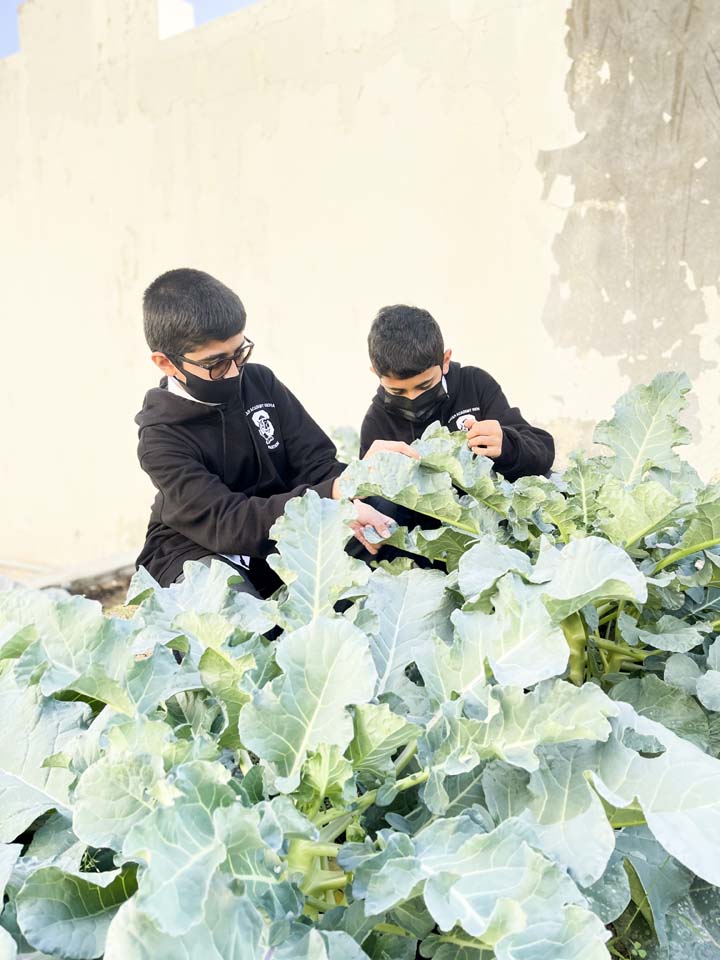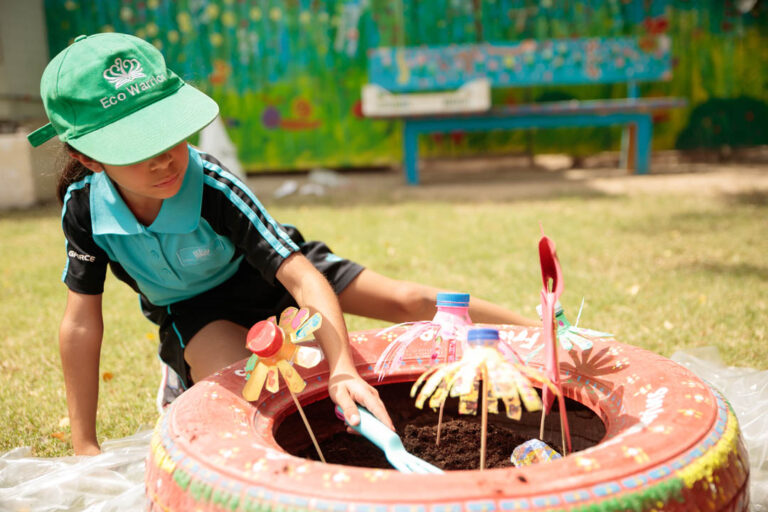The past two years have undoubtedly been challenging. Still, living through a pandemic has taught the world a much-needed lesson: the importance of community. We discovered ways to maintain our relationships with family and friends despite endless stretches of isolation, online schooling, and social restrictions. Virtual meetings and video calls became our lifeline to the outside world as our social lives became increasingly limited. Now, as the world slowly recovers, we’re returning to familiar routines, places, and faces. We’re dusting off the Covid cobwebs and starting to reengage with our lives and communities.
For many schools in Qatar, community activities form an essential part of promoting health, well-being, and purpose. Often a collaborative effort between students, parents, and teachers, they offer a chance to engage in activities that foster cooperation, understanding, and responsibility. They also create exciting opportunities for exploration, creativity, and problem-solving.
Guiding Green Thumbs
Sustainability has become a hot topic throughout the world. In Qatar, many schools are actively encouraging students to become responsible global citizens. At Qatar Academy Sidra (QAS), part of Qatar Foundation’s (QF’s) Pre-University Education, a sustainability project has literally grown from the ground up. The school garden, created by students and teachers of the QAS Science and Sustainability Club, is a riveting success. Spearheaded by Neema Saleem, a science technician and agriculturist, and Jaseena Faisal, an MYP teacher, the two passionate gardeners have inspired a new generation.

They’ve even piqued the interest of parents. “Our students adore gardening. They thoroughly enjoy the sessions and always look for more outdoor experiences. Some students have started their own gardens at home. Parents have expressed their appreciation towards our initiatives and are always very supportive,” says Neema.
The school garden offers students ages 11 to 17 a chance for practical hands-on experience. They can prepare soil, sow seeds, water and prune plants, add fertilisers, and harvest produce. Pre-Covid, the garden supplied the school cafeteria with fresh veggies and herbs. “Our supply of garden produce educated and encouraged our students to eat healthily. Students learnt the value of growing their food, respecting nature, and getting involved in activities to protect the planet,” explains Neema. She also shares that the school’s passion for gardening and growing food has led it to adopt UNESCO’s Garden Based Learning (GBL) as one of its integrated learning projects. The project aims to provide real-life experiences that enrich education and build community ties.
To create the garden, students and teachers found a suitable location, created a budget, and planned its layout. They sewed crops such as cabbage, lettuce, and broccoli. Carrots and radish were grown from seeds in pots and later transplanted to the field. Organic and mixed crops helped to boost soil nutrients. Additionally, they used most of the plant debris to supply natural organic material and create natural fertiliser. They also planted bright flowering plants such as marigold and sunflower to attract bees and insects for pollination.
Lessons for Life?
Undoubtedly, action-based learning, such as gardening, is an important opportunity to enhance the education experience. Emma Dempsey, PE teacher and phase leader at Compass International School Doha, initially organised several sustainability workshops, which soon sparked a lot of interest. “I felt it was important to complement the academic lessons with activities that would help the planet and get our pupils away from their screens. We are lucky to have an increasing number of teachers and students eager to start sustainability initiatives,” she says. To keep up with this demand, the school created a Green Fingers Extra-Curricular Activity (ECA). During this ECA, young students grow edible plants and learn the importance of plant life to the planet. Some of the older students also formed a group of eco-warriors to raise awareness of sustainability movements in Doha. Plus, parents and teachers have been invited to participate in Meat Free Mondays and to start composting at home. To promote The Global Goals and the 2030 Agenda for Sustainable Development, Compass worked closely with UNICEF to encourage environmental responsibility. As a result, Compass students and staff are working to reduce water consumption around the home and eradicate single-use plastic.

While saving the planet may be on many schools’ agendas, Emma believes community initiatives serve a deeper purpose. “Sustainability initiatives are great for more than just saving the planet. School clubs, ECAs, and workshops bring like-minded people together and build positive relationships, boost mental wellness, and empower people to try activities such as composting. It’s very powerful to know your actions are having a positive impact on someone millions of miles away, too—these sustainability initiatives improve positive global connectivity.” Neema and Jaseena agree. “The education from the garden is not just about science and botany. Importantly, it teaches life skills too. Students acquire different skills in areas pertaining to personal, academic, vocational, social, moral, and community development,” says Jaseena.
Connecting Communities
Beyond the campus, schools are joining community-based initiatives that promote local sustainability and environmental protection. Beach clean-ups have become extremely popular in Qatar. Several groups, including Doha Environmental Action Project (DEAP) and Seashore Group, organise weekend projects to collect plastic pollution and #KeepQatarClean. Moreover, Qatar Green Building Council (QGBC), a non-profit organisation and member of QF, organises Qatar Sustainability Week. This yearly public programme offers workshops, discussions, and activities to encourage sustainable development by engaging the community. And now that Covid restrictions are lessening, schools are looking forward to increasing their collaborations. “We’re very excited that school trips will be allowed again so we can join community initiatives such as beach cleaning,” says Emma.
As sustainability initiatives grow in popularity, an increasing number of schools are actively creating their own and are branching out to support the wider community. This creates opportunities for all members of society to strengthen personal connections, share knowledge, and utilise practical skills to help preserve the environment. Ultimately, efforts to make the world a healthier, more connected place are sorely needed as it recovers from the pandemic’s effects.



